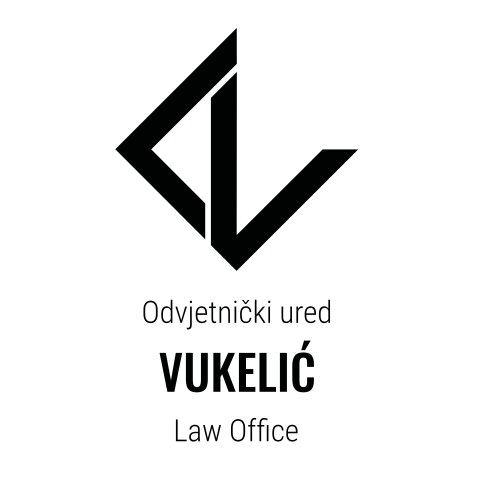Best Restructuring & Insolvency Lawyers in Zagreb
Share your needs with us, get contacted by law firms.
Free. Takes 2 min.
List of the best lawyers in Zagreb, Croatia
About Restructuring & Insolvency Law in Zagreb, Croatia
Restructuring and insolvency law in Zagreb, Croatia, deals with legal processes designed to manage the financial distress of businesses and individuals. These laws help entities facing financial difficulties restore their operations or, when necessary, manage the orderly winding down and repayment of debts. Zagreb, as the capital and business hub of Croatia, sees a significant number of restructuring and insolvency cases. The legal framework aims to balance the interests of creditors, debtors, and the broader economy, fostering solutions that can save viable businesses or maximize asset recovery when bankruptcy is unavoidable.
Why You May Need a Lawyer
Engaging a lawyer specializing in restructuring and insolvency can be essential in several situations. If your business is experiencing significant financial challenges and you are unsure how to proceed, a lawyer can assess whether restructuring, bankruptcy, or another solution is appropriate. Creditors may also need legal assistance to recover debts owed from struggling companies. Individuals who have guaranteed company debts or are directly affected by insolvency proceedings may need representation to protect their rights and interests. In all these cases, navigating complex procedures and regulations without legal guidance can lead to costly mistakes or missed opportunities for recovery.
Local Laws Overview
Croatian restructuring and insolvency law is primarily governed by the Bankruptcy Act and related provisions under the Croatian Companies Act and the Consumer Bankruptcy Act. In Zagreb, these laws apply to commercial entities registered in the city. Key aspects include:
- Insolvency proceedings can be initiated by debtors or creditors when a company or individual is unable to meet their financial obligations as they become due.
- The law emphasizes early intervention, so restructuring options like pre-bankruptcy settlements are available to restore solvency without resorting to liquidation.
- Once insolvency is declared, the court appoints an administrator who takes control of the debtor’s assets and oversees the process.
- Creditors must register their claims within specified deadlines to participate in distributions of the debtor’s assets.
- Directors and company officers must act in the best interests of creditors once insolvency is suspected, or they may be held personally liable for certain breaches.
- Special rules apply for cross-border insolvency cases, recognizing Croatia’s membership in the European Union.
The local Zagreb Commercial Court handles most insolvency cases within the city, ensuring that proceedings are managed under Croatian law and local practices.
Frequently Asked Questions
What is the process for filing bankruptcy in Zagreb, Croatia?
The process begins by submitting a petition to the Zagreb Commercial Court. The petition can be made by the debtor or a creditor. The court reviews the financial situation before deciding whether to open bankruptcy proceedings.
Who can initiate insolvency proceedings?
Insolvency proceedings in Croatia can be initiated by the debtor (company or individual), a creditor, or in certain cases, by the Financial Agency (FINA) if the debtor meets legal insolvency indicators.
How does a pre-bankruptcy settlement work?
A pre-bankruptcy settlement allows financially distressed but potentially viable businesses to negotiate restructured debt agreements with creditors under court supervision, aiming to avoid formal bankruptcy.
What are my rights as a creditor in an insolvency case?
As a creditor, you have the right to file your claims, attend creditor meetings, vote on certain resolutions, and participate in distributions from the debtor’s assets, subject to registration and court deadlines.
What happens to employees during insolvency?
Employees are considered priority creditors. In the event of insolvency, their unpaid wages and certain other claims are prioritized in the distribution of the company’s assets.
Can directors be held personally liable for company debts?
Directors may be held personally liable if they fail to file for insolvency in a timely manner or breach their duties during the period of financial distress, including by acting recklessly or causing additional losses.
How long do insolvency proceedings take in Zagreb?
The duration varies depending on the complexity of the case, the number of creditors, the availability of assets, and whether restructuring or liquidation is pursued. Simple cases may resolve in a few months that more complex cases may take years.
Are there options available to avoid bankruptcy?
Yes, options include negotiating new terms with creditors, seeking informal restructuring, or applying for a pre-bankruptcy settlement through the court to restore solvency without formal bankruptcy.
What is the difference between restructuring and bankruptcy?
Restructuring aims to enable a business to continue operating by reorganizing its debts and operations, typically without the company being liquidated, while bankruptcy leads to the sale of assets and the winding down of the company.
How can I find out if a company is in bankruptcy in Zagreb?
Bankruptcy proceedings are publicly registered. The FINA website and the Zagreb Commercial Court publish official notices, allowing the public and creditors to check the bankruptcy status of companies.
Additional Resources
Several resources and organizations can assist individuals and businesses dealing with restructuring and insolvency matters in Zagreb:
- Financial Agency (FINA) - Handles notifications and data about insolvency proceedings
- Zagreb Commercial Court - Official court for insolvency and restructuring matters
- Croatian Chamber of Economy - Business support and information
- Croatian Bar Association - Lists authorized lawyers with expertise in insolvency law
- Ministry of Justice and Public Administration - Provides legal updates and publications
- Professional consultants and certified insolvency practitioners based in Zagreb
Next Steps
If you are facing financial difficulties or are involved in an insolvency case in Zagreb, it is advisable to act proactively. Begin by gathering relevant financial documents and records regarding debts, assets, and business operations. Consider scheduling a consultation with a lawyer who specializes in restructuring and insolvency law. A local expert can assess your situation, explain your legal options, and help guide you through the necessary procedures. Contact the Zagreb Commercial Court or the Financial Agency for specific forms and information to initiate the process, if required. Early professional advice significantly increases the chances of achieving the best possible outcome, whether through restructuring, settlement, or bankruptcy proceedings.
Lawzana helps you find the best lawyers and law firms in Zagreb through a curated and pre-screened list of qualified legal professionals. Our platform offers rankings and detailed profiles of attorneys and law firms, allowing you to compare based on practice areas, including Restructuring & Insolvency, experience, and client feedback.
Each profile includes a description of the firm's areas of practice, client reviews, team members and partners, year of establishment, spoken languages, office locations, contact information, social media presence, and any published articles or resources. Most firms on our platform speak English and are experienced in both local and international legal matters.
Get a quote from top-rated law firms in Zagreb, Croatia — quickly, securely, and without unnecessary hassle.
Disclaimer:
The information provided on this page is for general informational purposes only and does not constitute legal advice. While we strive to ensure the accuracy and relevance of the content, legal information may change over time, and interpretations of the law can vary. You should always consult with a qualified legal professional for advice specific to your situation.
We disclaim all liability for actions taken or not taken based on the content of this page. If you believe any information is incorrect or outdated, please contact us, and we will review and update it where appropriate.

















